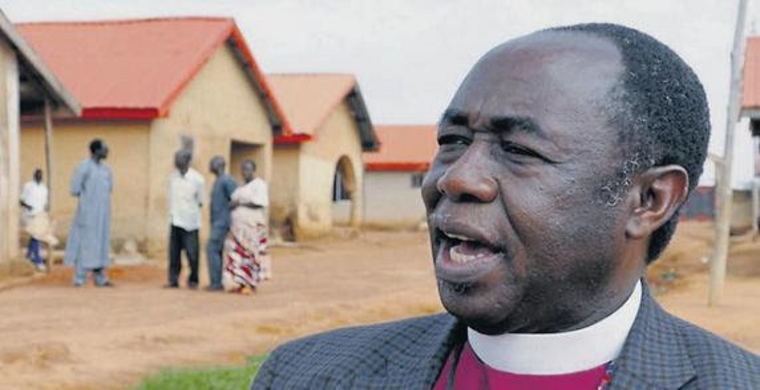'NOBODY SEEMS TO CARE AND WE ARE LOSING HOPE': ARCHBISHOP LAMENTS LOSS OF 1,000 LIVES IN NIGERIA
'Nobody seems to care what happens in this part of the world' said Archbishop Ben Kwashi of Jos in Northern Nigeria, the General Secretary of GAFCON, on BBC Radio News.
By Chris Sugden
September 20, 2020
Nigerian Archbishop Benjamin Kwashi said he was losing hope because 1,000 lives had been lost in the past 12 months, as nomadic Muslim Fulani Herdsmen with guns and knives had launched attacks on villages populated by Christian farmers to force the Christian communities off their land. The Federal Government of Nigeria had failed to disarm these herdsmen and it was even suggested that President Buhari, himself from the Fulani community, was supporting their land grab.
A report by the UK All Party Parliamentary Group on Freedom of Religion and Belief, released in June, noted that the Nigerian Government has failed to: 1. Protect the communities in the Middle Belt from acts of violence; 2. Investigate the crimes adequately or at all; and 3. Prosecute the perpetrators.
Such is only one example of the 250 million Christians in 144 countries whom the Truro Report, over a year ago, described as the most persecuted community in the world. The report had recommended that UK Aid should be made conditional on adherence to Article 18 of the UN Declaration on Human Rights that enshrined the right to change religion.
Reviewing the issue in a House of Lords 'Zoominar' in July, Bishop Philip Mounstephen of Truro said that, while contentious in Islamic contexts, this right must be upheld unequivocally. Of 60 questions participants were to answer, on the Truro website, one was posed by Bishop Michael Nazir Ali, one of the four members of the advisory board on FoRB at the Foreign and Commonwealth Office: 'Why cannot Britain's foreign aid be used to help Christians too?' (see his article in the Spectator, available at https://virtueonline. org/why-cant-britains-foreign-aid-be-used-help-christians-too)
Lord Alton noted that the commitment of Foreign Secretary Dominic Raab to the report was not shared by all senior civil servants, and that fashionable politically-correct causes ignored it. Research reveals a 'faith-blind' approach: the 'woke' 20-something redbrick-university youngsters whom Clare Short recruited, who see Christianity as a tool of white colonialism, plus senior civil servants who have become blind to anything other than economic and political advantage, together form a perfect firewall. The data shows that the office of Digital, Culture, Media and Sport has 36% of people who give their religion as Christian, the MOD 66%, the Foreign Office 48%, the Department for Exiting the EU 33%, and the Treasury 30%. The national average from the 2011 census for England and Wales is 59%.
Bishop Philip announced the establishment of the UK FoRB Forum and invited all participants in the seminars, individuals and organisations to contact the secretary Stephen.tunstall@goodfaith.org.uk to enrol, and to be actively involved. The first meeting was scheduled for September. Anglican Mainstream, Anglican International Development and the Evangelical Fellowship in the Anglican Communion have already signed up. August 22 was to be observed as a day to remember the victims of violence based on religion and belief.
Options for action
A number of options present themselves. The Zoominar stressed that the best way to advocate freedom of religion for Christians was to advocate freedom of religion for all. It is 'antithetical' to Christian faith to plead only for one's own religious adherents, said Bishop Philip, because there is no limit to the definition of a neighbour.
The Truro Report insists on Article 18 of the UN Declaration of Human Rights which affirms the freedom to change religion and that UK Aid should be conditional on adherence to this. The UK Government gives £300,000 a day to Pakistan where a Christian couple were burnt alive in front of their family and the Christian minister for minorities was murdered. On the contrary it is argued that cutting aid would harm the very people such action is designed to assist because no aid could be delivered to devastated communities.
A second option argues that freedom of religion, which implies a desire to convert, conveys a threat to majority religions. In these circumstances it is better to ask how members of minorities of all religions in majority religious situations can be equipped to protect themselves. External bodies such as Western governments are too far away to assist and their action triggers further oppression. What protection can be offered and provided?
A third perspective from Barnabas Fund is to emphasise Paul's injunction from Galatians 6:10, 'So then, as we have opportunity, let us do good to everyone and especially to those who are of the household of faith'. The church's priority must be to provide support for persecuted brothers and sisters.
It should be noted that the current pressure on the UK Government to legislate against the freedom of people with unwanted same-sex attraction to seek counselling runs counter to the concerns of both the present and former Foreign Secretaries to promote freedom of religion and thus choice in line with Article 18.
Evangelicals Now October 2020
https://efacglobal.com/news/2020-09/nobody-seems-to-care-archbishop-ben-kwashi














